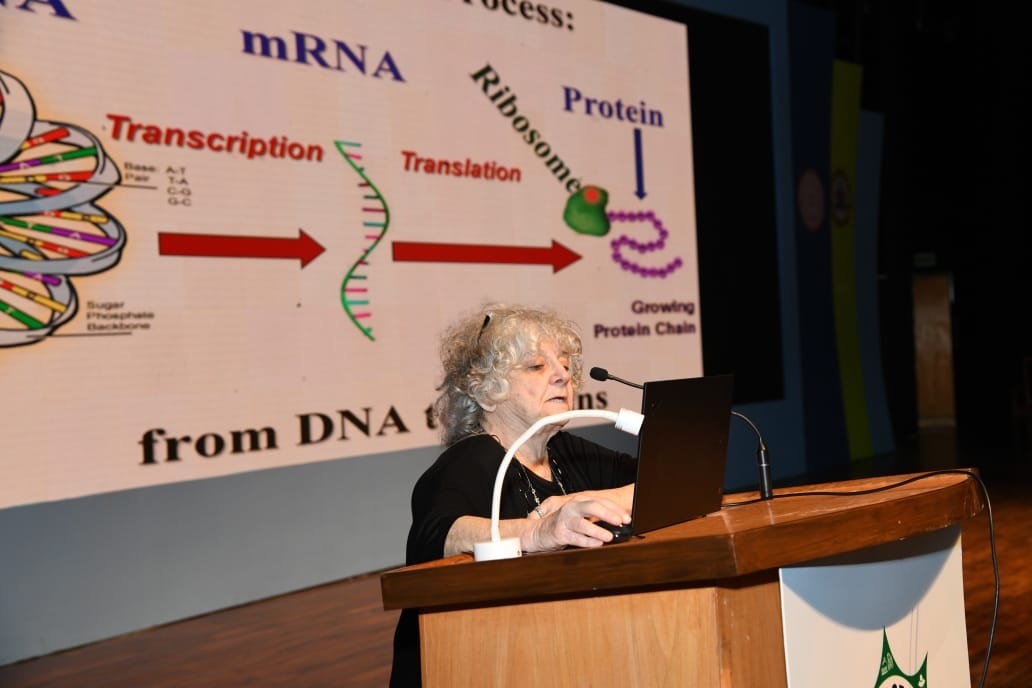
Nobel Laureate in Chemistry Professor Ada Yonath in her public lecture at the Indian Science Congress 2020 underlined the need to design pathogen specific essential structural proteins to develop novel eco-friendly antibiotics that can control anti biotic resistance.
Antibiotic resistance is a growing problem all over the world and Professor Yonath’s current passion is to find solutions for it. The increasing appearance of multidrug-resistant minimal number of new antibiotic drugs that are presently, undergoing development, is becoming a colossal health threat. Professor Yonath suggested a change in drug design and treatment strategies from the current preference of broad range antibiotics.
While natural antibiotics are the weapons that microorganism from one type use for interfering with cell life of different species, she elaborated that most of the ribosomal antibiotics are extensions of small organic molecules that cannot be digested by eukaryotes and cannot be degraded in the environment. These non-digestible, rather toxic compounds are also non-biodegradable and thus contaminate the environment. Furthermore, they penetrate into agricultural irrigation systems. These are increasingly being consumed by humans via grass, milk and so on, thereby spreading antibiotic resistance.
Explaining strategies to design eco-friendly antibiotics, she said that all ribosomes perform two major functions-- decoding and peptide bonds formation. In vivo, the ribosomes act continuously, and can form up 40 peptide bonds in one second making them very efficient machines.
Ribosomes in cells develop a specific method for their preservation and around 40% of the clinically useful antibiotics target protein biosynthesis, mostly paralyzing the ribosome.
Modifications of the bacterial ribosome regulate the function of the ribosome and modulate its susceptibility to antibiotics. Antibiotics target ribosomes at distinct locations and exert their inhibitory action by diverse modes, including competing with substrate binding, interfering with ribosomal dynamics, minimizing ribosomal mobility and so on. Ribosomes active sites are highly conserved enabling drug selectivity, thus facilitating clinical usage based on minute variations. Designs that can make ribosomes pathogen specific structural proteins will help improve their performance and help control resistance.
She dreamt of the day that this can help control the growing problems of antibiotic resistance increasing life expectancy all over the world and urged pharma companies to adopt such strategies for the benefit of humanity rather than for profit.
Prof. Yonath received a bachelor’s degree in chemistry in 1962 and a master’s degree in biochemistry in 1964 from Hebrew University in Jerusalem. She then attended the Weizmann Institute of Science in Israel as a graduate student, studying X-ray crystallography and receiving a Ph.D. in 1968. After a brief stint as a postdoctoral researcher at Carnegie Mellon University in Pittsburgh, Pa., Yonath joined the department of chemistry at the Massachusetts Institute of Technology (MIT) as a postdoctoral fellow. There she began investigating the structure of ribosomes using X-ray crystallography and pioneered the development of new approaches to the study of structural characteristics of large, complex molecules.






























